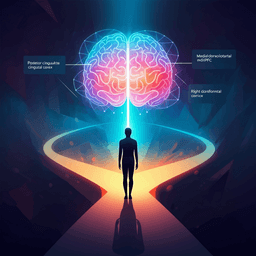
Medicine and Health
Event-related brain response to visual cues in individuals with Internet gaming disorder: relevance to attentional bias and decision-making
B. Kim, J. Lee, et al.
This groundbreaking study by Bo-Mi Kim and colleagues uncovers the neural markers linked to attentional bias in Internet Gaming Disorder (IGD). The research reveals that IGD participants exhibit heightened emotional responses to game-related cues, alongside noticeable decision-making challenges. Delve into the intricate relationship between gaming cues and social perception to better understand IGD's impact.
Related Publications
Explore these studies to deepen your understanding of the subject.







